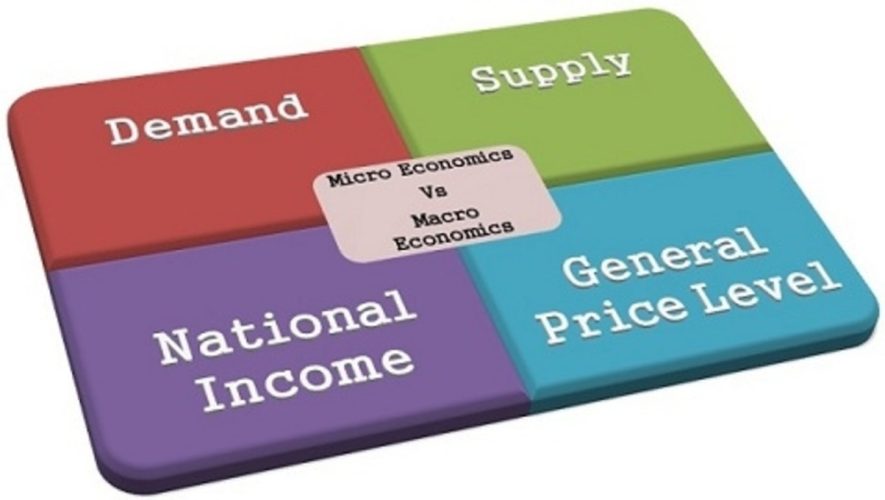Economics defined
In its most simple and concise definition, economics is the study of how society uses its limited resources. It is a social science that deals with the production, distribution, and consumption of goods and services.
Economics focuses heavily on the four factors of production, which are land, labor, capital, and enterprise. These are the four ingredients that make up economic activity in our world today and can each be studied individually.
Economics is split into the following two broad categories of study:
- Microeconomics
- Macroeconomics
Microeconomics
Microeconomics is the branch of economics that studies how households and businesses reach decisions about purchasing, savings, setting prices, competition in business, etc. It is the study of economics at an individual, group or company level.
Hence, Microeconomics focuses on issues that affect individuals and companies. This could mean studying the supply and demand for a specific product, the production that an individual or business is capable of, or the effects of regulations on a business.
Macroeconomics
Macroeconomics, on the other hand, is the study of a national economy as a whole. It is the branch of economics that studies the overall working of a national economy and looks at the decisions that affect entire countries and society as a whole.
Macroeconomics focuses on issues that affect the economy as a whole. Some of the most common focuses of macroeconomics include unemployment rates, the gross domestic product of an economy, and the effects of exports and imports.
When you hear the Federal Reserve is raising interest rates or that the national unemployment rate is 7.5%, you are hearing about macroeconomic topics.
Microeconomics vs Macroeconomics
| Microeconomics | Macroeconomics |
| The study of individual decisions is called microeconomics. | The study of the economy as a whole is called macroeconomics. |
| Microeconomics studies individuals and business decisions. | Macroeconomics analyzes the decisions made by countries and governments. |
| Microeconomics focuses on supply and demand, and other forces that determine price levels, making it a bottom-up. | Macroeconomics takes a top-down approach and looks at the economy as a whole, trying to determine its course and nature. |
| Investors can use microeconomics in their investment decisions. | Macroeconomics is an analytical tool mainly used to craft economic and fiscal policy approach. |
OTHER RELATED POSTS



